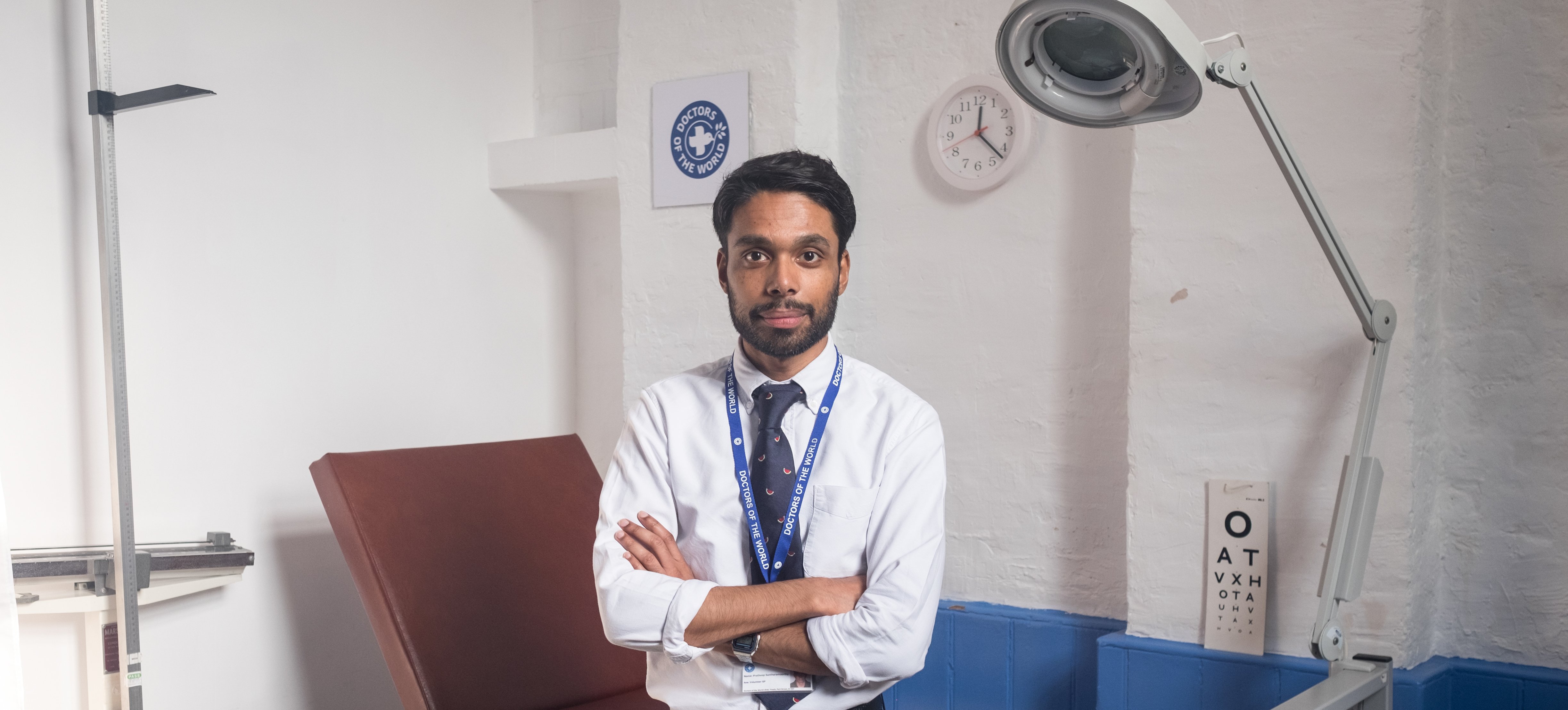Pratheep is a volunteer GP at our London clinic, where we treat asylum seekers, undocumented migrants, homeless people and other vulnerable patients.
I heard about Doctors of the World when I was at medical school and, as soon as I qualified as a GP last year, I looked into how I could get involved.
Working with these patients is an issue close to home for me. My family were refugees when we moved to the UK in 1990. We’d had to leave Sri Lanka due to the civil war. We’re from northern Sri Lanka and there were air raids happening in nearby villages.
When we first arrived, we had to stay with friends, in B&Bs, and in different council houses – we moved around a lot. My dad worked at a petrol station and my mum worked in small shops. It was hard to settle in at first.
When it came to healthcare, it was hard to know how to get it – we were lucky to live near a GP who spoke Tamil – but the barriers my patients face now are something new.
At the Doctors of the World clinic, many of our undocumented patients aren’t going to the doctor because they’re scared of the Home Office. GP surgeries also ask our patients for ID and address documents that they don’t have, and there are language barriers too. Going to a GP in those circumstances can be very daunting.
In August, I had two dramatic cases at the clinic on a single day. I saw a Filipino woman who’d had emergency surgery for an ectopic pregnancy, but she wasn’t registered with a GP so she couldn’t get the follow-up care she needed. I removed her sutures and changed her dressings.
I also saw a domestic worker who had burns on her arm and face, as a candle had fallen over in her bedroom while she was asleep. She’d been to A&E, but again she didn’t have a GP for follow-up care. I changed her dressings, and we also did a social consultation with her and referred her to a support group for domestic workers. Our patients might come in with a health problem but we end up helping them in so many ways.
I enjoy the thoroughness of the casework and the consultations here. We do long consultations with patients and then I write to the GP we’re registering them with, in order to explain their needs.
When I was at medical school, there were lots of placements where you could go abroad and help people. But there is also so much that can be done right here.
